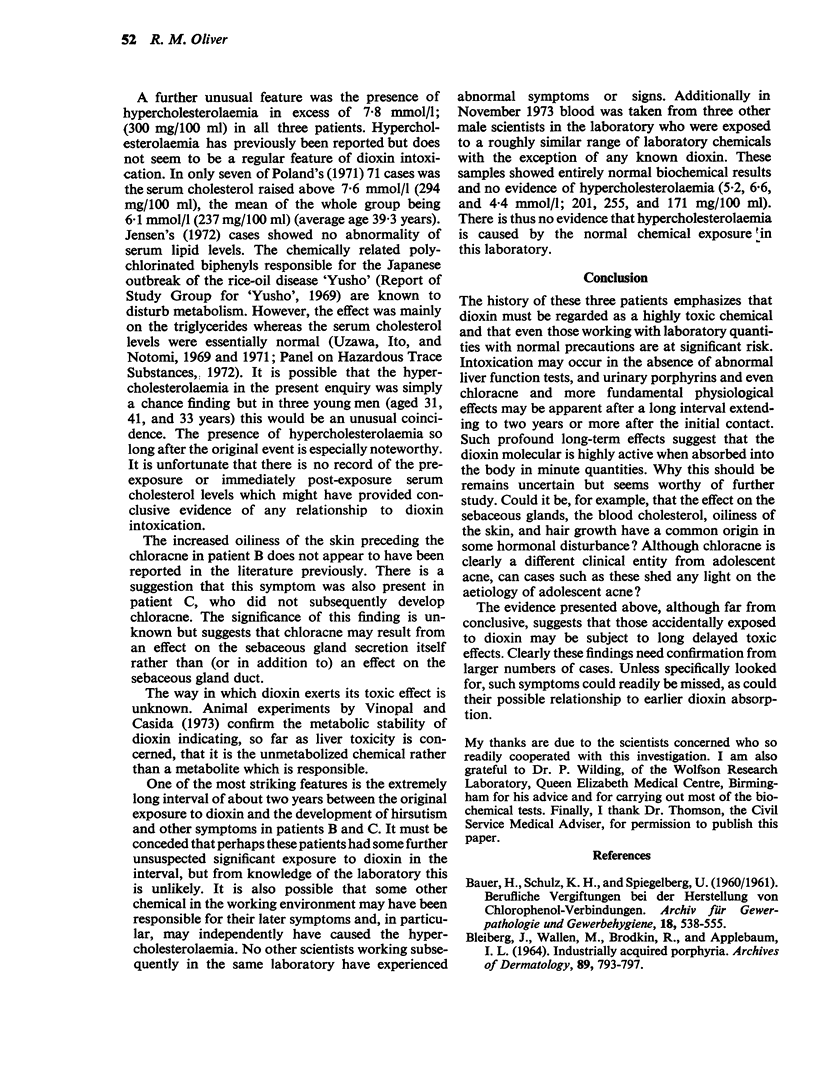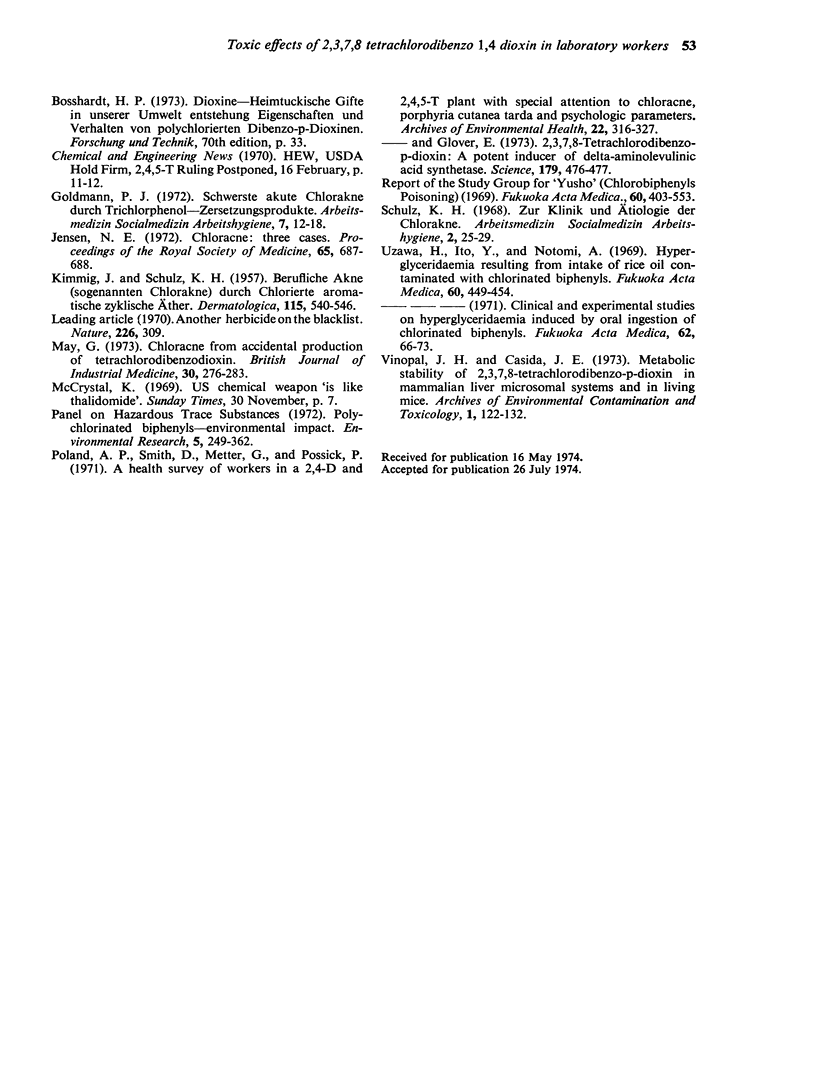Abstract
The toxic effects on three young scientists who had transient minimal exposure to 2,3,7,8 tetrachlorodibenzo 1,4 dioxin (dioxin) are described. Two of them suffered from typical chloracne. Delayed symptoms about two years after initial exposure occurred in two of the scientists. These symptoms included personality changes, other neurological disturbances, and hirsutism. All three scientists were found to have raised serum cholesterol but no other biochemical disturbances, and no porphyrinuria nor liver damage was demonstrated. The question whether the unusually delayed physiological effects were in fact due to the initial dioxin exposure is discussed. Although conclusive evidence is lacking, it seems likely that these delayed effects were in fact due to dioxin intoxication.
Full text
PDF




Selected References
These references are in PubMed. This may not be the complete list of references from this article.
- BLEIBERG J., WALLEN M., BRODKIN R., APPLEBAUM I. L. INDUSTRIALLY ACQUIRED PORPHYRIA. Arch Dermatol. 1964 Jun;89:793–797. doi: 10.1001/archderm.1964.01590300021006. [DOI] [PubMed] [Google Scholar]
- Jensen N. E. Chloracne: three cases. Proc R Soc Med. 1972 Aug;65(8):687–688. doi: 10.1177/003591577206500810. [DOI] [PMC free article] [PubMed] [Google Scholar]
- KIMMIG J., SCHULZ K. H. Berufliche Akne (sog. Chlorakne) durch chlorierte aromatische zyklische Ather. Dermatologica. 1957 Oct;115(4):540–546. [PubMed] [Google Scholar]
- May G. Chloracne from the accidental production of tetrachlorodibenzodioxin. Br J Ind Med. 1973 Jul;30(3):276–283. doi: 10.1136/oem.30.3.276. [DOI] [PMC free article] [PubMed] [Google Scholar]
- Poland A. P., Smith D., Metter G., Possick P. A health survey of workers in a 2,4-D and 2,4,5-T plan with special attention to chloracne, porphyria cutanea tarda, and psychologic parameters. Arch Environ Health. 1971 Mar;22(3):316–327. doi: 10.1080/00039896.1971.10665850. [DOI] [PubMed] [Google Scholar]
- Poland A., Glover E. 2,3,7,8-Tetrachlorodibenzo-p-dioxin: a potent inducer of -aminolevulinic acid synthetase. Science. 1973 Feb 2;179(4072):476–477. doi: 10.1126/science.179.4072.476. [DOI] [PubMed] [Google Scholar]
- Vinopal J. H., Casida J. E. Metabolic stability of 2, 3, 7, 8-tetrachlorodibenzo-P-dioxin in mammalian liver microsomal systems and in living mice. Arch Environ Contam Toxicol. 1973 Jul;1(2):122–132. doi: 10.1007/BF01986002. [DOI] [PubMed] [Google Scholar]


